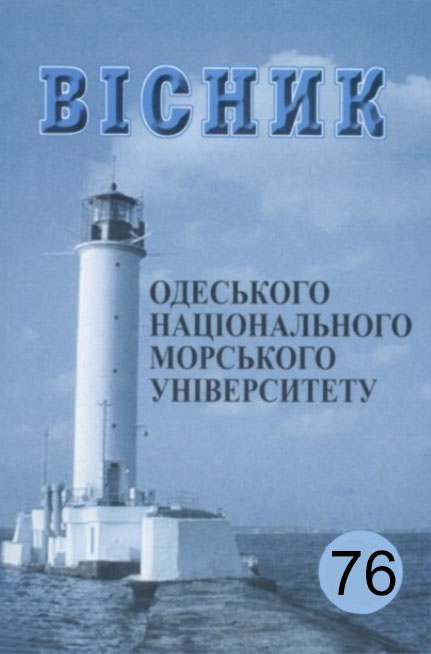Practical issues of ensuring maritime safety measures considering environmental consequences of accidents
Main Article Content
Abstract
The article explores the main risk areas in maritime navigation related to human factors, equipment failures and severe weather conditions. Particular attention is paid to the analysis of the environmental consequences of maritime accidents, in particular oil spills and degradation of marine ecosystems. The provisions of international conventions on safety of navigation (SOLAS, COLREG-72, ISM Code) and modern approaches to risk management, including crew training, process automation, technical condition monitoring and environmental protection, are considered. Of particular scientific value is the proposed system of mathematical models for assessing environmental risk, which take into account the probability of an accident, the amount of pollution, the sensitivity of the marine environment, and economic losses. The presented models provide for making informed decisions on planning preventive measures and optimizing actions in emergency situations. The article also provides a comparative analysis of the effectiveness of investments in crew training, monitoring and automation systems, which demonstrates the ability of such measures to significantly reduce the level of risks and ensure sustainable shipping safety. An integrated approach that combines technical, human and environmental factors creates a scientific basis for developing an effective maritime risk management strategy.
Article Details
References
2. Chae C.J., Kim K.H., & Kang S.Y. (2021). Limiting ship accidents by identifying their causes and determining barriers to application of preventive measures. Journal of Marine Science and Engineering, 9(3), 302 p. https://doi.org/10.3390/jmse9030302
3. Okubo M. (2014). A critical analysis of safety and marine environmental protection regulations for oil and gas development in the high seas. World Maritime University Dissertations. World Maritime University. Retrieved from The Maritime Commons: Digital Repository of the World Maritime University.
4. Awal Z.I., Hasegawa K. A study on accident theories and application to maritime accidents. Procedia Eng. 2017, 194. P. 298-306.
5. Akyuz E. Quantitative human error assessment during abandon ship procedures in maritime transportation. Ocean Eng. 2016, 120. P. 21-29.
6. Hanzu-Pazara R., Duse C.V., Andrei C., Dumitrache R. The influence of ship’s stability on safety of navigation. In Proceedings of the IOP Conference Series: Materials Science and Engineering, Bali, Indonesia, P. 19-20 March 2016.
7. Schröder-Hinrichs J.U., Hollnagel E., Baldauf M., Hofmann S., Kataria A. Maritime human factors and IMO policy. Marit. Policy Manag. 2013, 40. P. 243-260.
